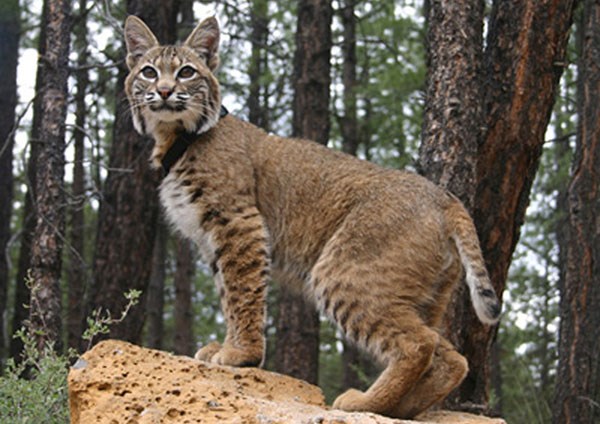After nine years focusing on residential wildlife attractants, it’s time to look to the outback, says Squamish’s WildSafe B.C. coordinator.
With tourism advertizing highlighting Squamish’s outdoor recreation and new branding inviting people to come and share the adventure, Meg Toom is bracing herself for more calls regarding wildlife encounters.
“It is just going to be an ever-growing problem as we bring more people into our trail networks,” she said.
So far this year, conservation officers are busying warning people about an aggressive bobcat. A number of dogs were sent to veterinarians for stitches after unwelcome meetings with the bobcat. The dogs were off leash, Toom noted, adding the attacks took place near Fawn Lake and in the Coho Park Trail area.
“In the nine years working here, we have never had any calls coming in about aggressive bobcats,” Toom said, noting the cats usually go after smaller pets rather than approaching dogs.
Toom plans to spend this year educating people on how to safely explore our wilderness without disturbing or unknowingly encouraging wildlife conflicts. On Wednesday (April 23) at 7 p.m. at the Squamish Adventure Centre, Toom and local conservation officers will host an information meeting titled Living With Wildlife.
Last week, the Ministry of Environment announced it would dole out $275,000 to WildSafe B.C. programs, including the initiative in Squamish. In 2013-’14, the province’s Conservation Officer Service received 28,063 calls regarding human-wildlife conflicts. Of those calls, 16,180 involved human-bear encounters.
Over the past five years in B.C., an average of 658 black bears were destroyed each year, while 91 have been relocated. The responsibility to manage human-wildlife conflicts rests with everyone, provincial WildSafe B.C. co-ordinator Frank Ritcey said in a statement.
“It requires participation from all levels of government and local citizens to be successful,” he stated. “It only takes a few simple steps to reduce the number of conflicts, and WildSafe B.C. is a valuable resource in keeping communities and wildlife safe.”
Report human-wildlife conflicts to the Report All Poachers and Polluters (RAPP) line toll-free at 1-877-952-7277 or visit the RAPP website at www.rapp.bc.ca.




